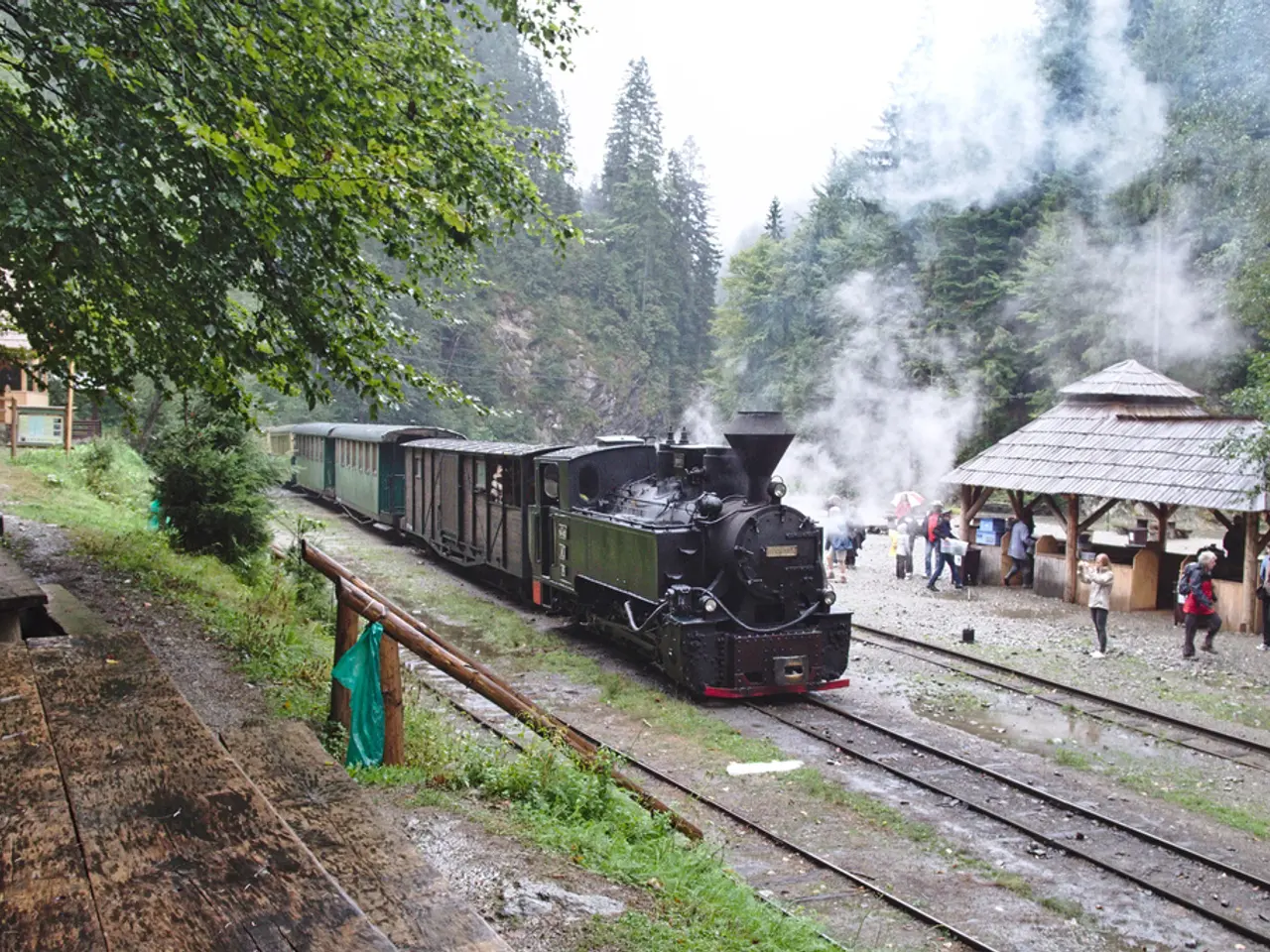Construction of a new boiler house underway in Eveno-Bytantaii
In the chilly expanses of Yakutia, Russia, a green energy revolution is underway. The region, known for its harsh climate and abundant forest resources, is transitioning to wood chip-based boiler houses, a shift that promises to improve energy security, sustainability, and environmental protection.
The latest addition to this eco-friendly energy network is a new boiler house in the Eveno-Bytantaisk village of Kustur, slated to operate on wood biomass. Funded by a special treasury loan from the GUP "JHKH RS (Y)", the 3 MW boiler house, currently 94% complete, will supply heat to the remaining residential buildings in Kustur, which has over 170 residential structures.
This move towards wood chip-based heat sources is significant, as they are more environmentally friendly compared to traditional boilers running on petroleum products. The use of wood chips—a renewable resource—helps in decreasing greenhouse gas emissions and supports sustainable forest management. Moreover, these boiler houses offer fuel savings because wood chips are often cheaper and more readily available locally than fossil fuels, reducing transportation emissions and costs.
This transition can be seen across Yakutia, with new boiler houses popping up in various locations, including Abaga, Khapchagay, Byliktakh, Krest-Khaldzhay, Bereg-Yurday, Batagay, and Bolshoi Nimnyr. Boiler houses have also started operating in Markha, the capital's "Zvezdy" microdistrict, and on the Sergeleykshoye Highway.
Last year, 14 new boiler houses with a total capacity of over 193 MW were built in the region, indicating a concerted effort towards a greener energy future. Notably, the first boiler house in the district, commissioned six years ago in Djargalakha, has a capacity half that of the new one, reflecting the region's commitment to scaling up its green energy infrastructure.
The Ministry of Housing and Energy of Yakutia is actively involved in these projects, ensuring a smooth transition to sustainable energy sources. While detailed quantitative data and case studies specific to Yakutia are not readily available, regional energy reports and environmental assessments by Russian local government or forestry agencies may provide further insights into the environmental impact and fuel savings of wood chip-based boiler houses in the region.
In conclusion, the shift towards wood chip-based boiler houses in Yakutia represents a promising step towards a greener, more sustainable energy future. By utilising locally sourced biomass, these boiler houses can significantly reduce environmental impact, lower reliance on fossil fuels, and provide fuel savings, all while improving energy security in the region.
- The shift towards wood chip-based boiler houses in environmental-science findings supports the use of renewable-energy sources, like wood biomass, for heat production.
- The growing number of wood chip-based boiler houses in Yakutia's industry landscape is reducing climate-change consequences, as these boilers generate less greenhouse gas emissions compared to traditional petroleum-based boilers.
- As finance is channeled towards green projects, like the GUP "JHKH RS (Y)" loan for Kustur's 3 MW boiler house, the renewable-energy sector in Yakutia experiences significant growth and development.
- The implementation of sustainable forest management practices, as seen in the wood chip-based boiler houses, is essential for the environment and underscores the importance of collaborative efforts between the science, finance, and industry sectors towards a greener future.




